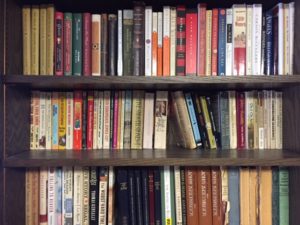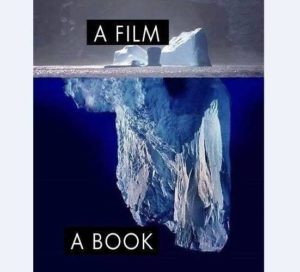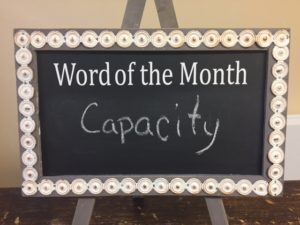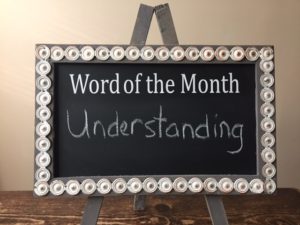Facts or Fiction?
History books have a bad reputation for being very dry and boring. Some actually are. Most of those writing history have done extensive research and base their writing on factual accounts. It is a joy for me to find a serious history book written by an author who has not only done research, but has the ability to express historical facts in ways that make it come alive through exceptional writing.
Fiction writers who have done their homework, can give us a pretty good sense of what historical events were like or how it might have felt to live through them. I very much enjoy historical fiction written by skilled writers who have done research and put forth the effort to make it historically accurate as well as compelling. Though main characters and story details may be imagined, they allow us to experience history through their eyes.
Why Reading History Matters
I am amazed and appalled at the lack of historical knowledge, especially among young people today. I realize that many of my generation slept through history classes, but at least we took history classes. So many seem to lack knowledge of basic historical events – when and where they occurred and primary people involved – let alone any understanding of the complex issues behind them. We seem set up to repeat serious mistakes of the past. Actually history has repeated itself in horrible ways. When will we learn from history? First we must learn history.
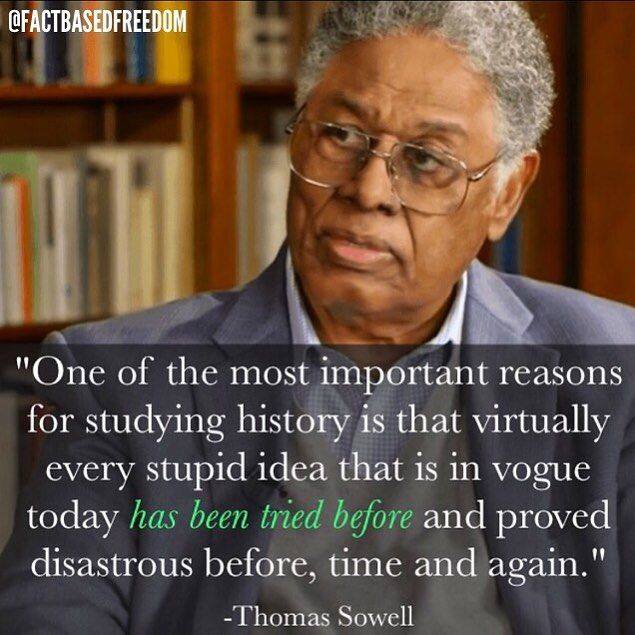
As someone who not only lived through the Cold War, but has read about communism and socialism, I find it unbelievable that so many young people actually want socialism. Why do they not get it? Maybe because they only read or listen to what we would have termed “propaganda” – the promises of utopia, equality and prosperity. History has shown us that these are illusions. Socialism and communism (one leads to the other) have always turned out badly.
I am also concerned about the lack of knowledge of the founding principles and documents of this country. After all that the early patriots sacrificed to establish this government and to defend it, some seem ready to throw it all away. Problems in America today do not exist because of our form of government, but they have become worse because we are straying from the principles upon which it was formed. We need to return to those principles, but first must learn them.
My History List
These are some of my favorite histories and historical fiction. These are books that made an impact on me. Your reactions may be different and that is okay. Some of these are classics recommended by many. Some I just happened upon and you may not have heard of, but they impressed me. Many of these have been made into movies that you probably have seen. I always recommend reading the book. Books give more detail, often the prose is beautifully written, and frankly, too often movie makers alter books to fit their own agendas.
This is by no means a comprehensive list. Some good ones may have slipped my mind for the moment and I hope to add more in time. They are kind of grouped, but in no particular order. Please feel free to mention your favorites in “Comments.”
Early American History
- Mayflower: A Story of Courage, Community, and War by Nathaniel Philbrick
I read this after I joined the General Society of Mayflower Descendants and was interested to learn more. Not only did it cover the migration to America and the early years here, but the interactions with Natives and the wars with them were very enlightening. - Young Washington by Peter Stark
This book gives a good portrait of George Washington and how events during the French and Indian War influenced his life and future. It provides good background to understanding the roots of the Revolution. - Strange and Obscure Stories of the Revolutionary War by Tim Rowland
This is an easy and often humorous read about a number of incidents during the Revolutionary War. If you think history is boring, read this. - Miracle in Philadelphia: The Story of the Constitutional Convention May to September 1787 Catherine Drinker Bowen
This is an excellent book about the laborious process of writing the Constitution of the United States. It truly was a miracle that this group of strong willed and opinionated men were able to discuss and come to a workable compromise that has endured. (A process today’s lawmakers could learn from) It makes clear what the constitution was intended to do and what it intentionally did not address. The book includes the full text of the constitution and amendments for study.
Books about Slavery and the Civil War
- Uncle Tom’s Cabin by Harriet Beecher Stowe This book is a classic which should be required reading for everyone.
- Incidents in the Life of a Slave Girl by Harriet Ann Jacobs
- Harriet Tubman: Portrait of an American Hero Bound for the Promised Land by Kate Clifford Larson
- Team of Rivals: The Political Genius of Abraham Lincoln by Doris Kearns Goodwin
This is an excellent book about Abraham Lincoln and the political process of the time. We could use leaders like him now. - Gone With the Wind by Margaret Mitchell
Many are familiar with the Movie, but the book is well worth the read.
Native American History
- Bury My Heart at Wounded Knee: An Indian History of the American West by Dee Brow
- Lost Kingdom: Hawaii’s Last Queen, The Sugar Kings, and America’s First Imperial Adventure by Julie Flynn Silver
Into the 20th Century
- The Grapes of Wrath by John Steinbeck
I love Steinbeck’s writing and this classic picture of human dignity in horrible circumstances. It has also been made into a movie, but I recommend the book. - The Worst Hard Time: The Untold Story of Those Who Survived the Great American Dust Bowl by Timothy Egan
This is a non-fiction work about the Dust Bowl and those who stayed and lived through it. The other side of the story presented in The Grapes of Wrath but featuring real people.
Books about World War II
- The Hiding Place by Corrie Tenboom
- Schindler’s List by Thomas Keneally The movie was popular, but the book allows you to spend time pondering and processing.
- The Guernsey Literary & Potato Peel Pie Society by Mary Ann Shaffer
This book is an enjoyable read, but it highlights serious issues of living in occupied territory and resisting a war. - Unbroken: A World War II Story of Survival, Resilience, and Redemption by Laura Hillenbrand This is the moving true story of an American prisoner of war in Japan.
- The Greatest Generation by Tom Brokaw
This shares examples of character and values of those who lived through trying times. - Anne Frank Diary of a Young Girl The classic we all read in school, but maybe not so much anymore.
Books Dealing with Other 20th Century Issues in the World
- The Sandcastle Girls by Chris Bohjallan
I just happened to find and read this book as we marked the Centennial of the events portrayed. I was amazed that not only do very few people today know anything about the Armenian genocide, but at the time it occurred, news of it was essentially buried because of the larger World War I. It makes me wonder if more people were aware, would such horrors have been repeated? - Shanghai Girls & Dreams of Joy by Lisa See
I discovered Lisa See with her book On Gold Mountain which is basically her family history – a very interesting family history beginning with a Chinese immigrant who married an American.
Shanghai Girls is fiction set in China and California about two sisters who become brides to paper sons of a Chinese immigrant in California. Dreams of Joy is the next generation sequel about the 19 year old daughter. Upon encountering radicals at an American University preaching the glories of socialism, she goes to China in 1957 to become part of Mao’s “Great Leap Forward” into the “New Society”. Her mother heroically saves her from being one of the millions of Chinese who starved to death during this period of “prosperity.” - The Headmaster’s Wager by Vincent Lam
I just happened upon this book, but found it compelling. It’s central character is a Chinese man running an English school in Saigon just prior to and during the Vietnam War. It overlaps the time period of See’s Dreams of Joy, which picture was still in my head when I read about this Headmaster sending his son to China. It gives a sense of the way Communism creeps in and takes over. - A Fine Balance by Rohinton Mistry
Set in India, this book reveals the injustice and cruelty of the caste system. - A Thousand Splendid Suns & The Kite Runner by Khaled Hosseini
These books provide some insight into the history and culture of Afghanistan which is helpful in understanding more recent events there. - Reading Lolita in Tehran by Azar Nafisi This book not only gives a glimpse of life in Tehran during trying times but also reinforces the value of books.

